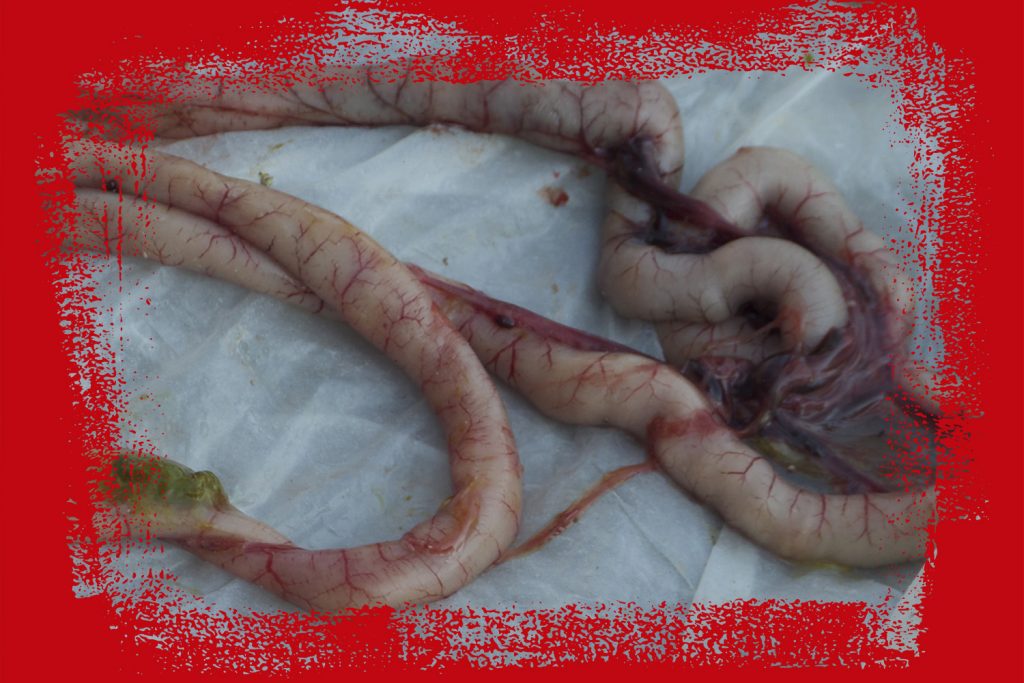23 Mar Intestinal inflammation, why does it matter?

Inflammation is a complex biological reaction to a harmful event, such as the presence of pathogens, toxins, or damaged cells. It involves the innate immune system, the blood vessels, and molecular mediators, promoting radical changes in the architecture and function of the tissue.
Although inflammation is a beneficial process aimed at the repair of the damaged tissue, when it persists, it may lead to disease and productivity losses.
There are two types of intestinal inflammation:
- Inflammation of infectious origin: due to the presence of pathogens or to dysbiosis
- Sterile inflammation (low-grade, chronic inflammation not accompanied by infection): caused by the presence of anti-nutritional factors, mycotoxins, rancid fats, excess of soluble fiber or protein or external factors such as stress. Sterile inflammation will generate free radicals, which lead to oxidative stress in the gut and will, at its turn, worsen the inflammation and cause damage in the tissues, entering a vicious circle that it is difficult to overcome.
In poultry, external signs of gut inflammation include watery diarrhea, substandard litter quality, poor appearance of the feathers, dirty vents, reduced feed intake and deficient productivity. On necropsy, inflammation can be observed in the different layers of the intestine, sometimes accompanied by dilated blood vessels.
Consequences of intestinal inflammation
Intestinal inflammation is associated with poor nutrient absorption, for these two reasons:
- Villus height and crypt depth are significantly decreased.
- Nutrients (in the small intestine), water and electrolytes (in the large intestine) uptake and transport are disrupted.
Pathogens such as Clostridium perfringens use non-absorbed nutrients as a substrate for growth, leading to infectious digestive diseases such as necrotic enteritis.
Secondly, certain molecular mediators released during inflammation increase the permeability of tight junctions, breaking the gut barrier function and exposing the animal to systemic infections.
Lastly, inflammation consumes energy, decreases carbohydrates and protein reserves, impairing performance and causing weight loss, apathy, and a reduction of feed intake.
Anti-inflammatory phytogenics – Mechanism of action
The beneficial effects of antibiotic growth promoters (AGP) have always been attributed to their bactericidal action. However, recently, it has been hypothesized that they work by controlling inflammation.
Now that AGP are banned or being phased out in many countries around the world, anti-inflammatory phytogenics can successfully replace them. They act through three mechanisms of action:
- Certain phytogenics are powerful antioxidants. In this article, we explained how oxidative stress is related to inflammation.
- Certain phytogenics inhibit disrupt the metabolic pathway of arachidonic acid, a pathway that leads to inflammation, vascular permeability, pain, and gut damage.
- Other phytogenics inhibit the secretion by macrophages of cytokines related to inflammation.
Products of choice
GrowthPlus© is added to feed to maintain and improve digestive health. It is formulated with synergistic ingredients:
- Bactericidal and fungicidal plant extracts, combined with organic acids for better effectiveness, that reduce the number of pathogenic microbes in the digestive system.
- Plant extracts with prebiotic effect, that promote the growth of beneficial bacteria in the gut.
- Immunostimulant and antioxidant plant extracts.
- Silicates with mycotoxin binding function.
It is especially useful in cases of gizzard diseases, necrotic enteritis, feed passage and other enteritis. It is also used as a natural growth promoter and to replace antibiotic growth promoters.
Do not miss any of our articles!
Subscribe to our monthly newsletter

Certain health statements may not be applicable in your region.

